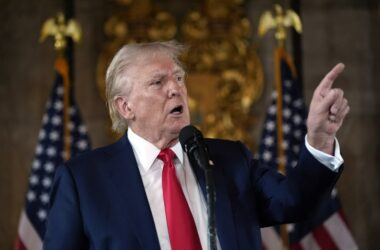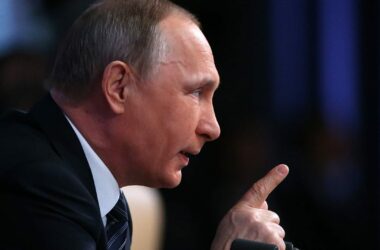Mistral, a burgeoning French start-up, is poised to disrupt the artificial intelligence (A.I.) landscape, positioning itself as a formidable contender against industry behemoths like OpenAI and Google. Backed by European leaders striving to safeguard the region’s cultural and political values, Mistral represents a pivotal effort to assert Europe’s presence in the high-stakes competition with the United States and China in the realm of A.I.
At the helm of Mistral is Arthur Mensch, a 31-year-old chief executive and co-founder, whose unassuming demeanor belies the weighty expectations placed upon him by European officials. Lauded as the “poster child for A.I. in France,” Mensch and his team have swiftly propelled Mistral into the spotlight, garnering support from the French government and European Union policymakers in their quest to establish a European A.I. champion.
The urgency surrounding Europe’s A.I. ambitions stems from concerns that the region risks falling behind in the rapidly evolving global economy. Fearing domination by tech giants like Microsoft and Google, European leaders advocate for nurturing homegrown talent like Mistral to ensure that A.I. development aligns with European values and interests.
Mistral’s innovative A.I. technology, characterized by its generative capabilities, has attracted attention for its potential to rival the advancements of OpenAI. With its versatile and cost-effective machine-learning solutions, Mistral has already secured partnerships with prominent European entities such as Renault and BNP Paribas.
The robust support from the French government underscores the strategic significance of A.I. in contemporary geopolitics. As nations vie to bolster their technological capabilities, Mistral emerges as a frontrunner in Europe’s quest for technological sovereignty.
However, the road ahead is not without challenges. Despite its promising trajectory, Mistral faces formidable competition from established American and Chinese players in the A.I. arena. Moreover, the substantial financial resources required for A.I. development pose a significant hurdle, despite France’s advantageous access to inexpensive nuclear power.
Nevertheless, Mistral remains steadfast in its commitment to open-source principles, advocating for transparent and collaborative A.I. development. By making its technology accessible to researchers and businesses alike, Mistral aims to accelerate innovation and foster economic growth while safeguarding against potential misuse of A.I. technologies.
Arthur Mensch, guided by his vision for ethical and inclusive A.I., emphasizes the importance of European autonomy in shaping the future of artificial intelligence. With Mistral’s ascent, Europe stands poised to carve out its place in the global A.I. landscape, contributing to a more diverse and equitable technological ecosystem.








